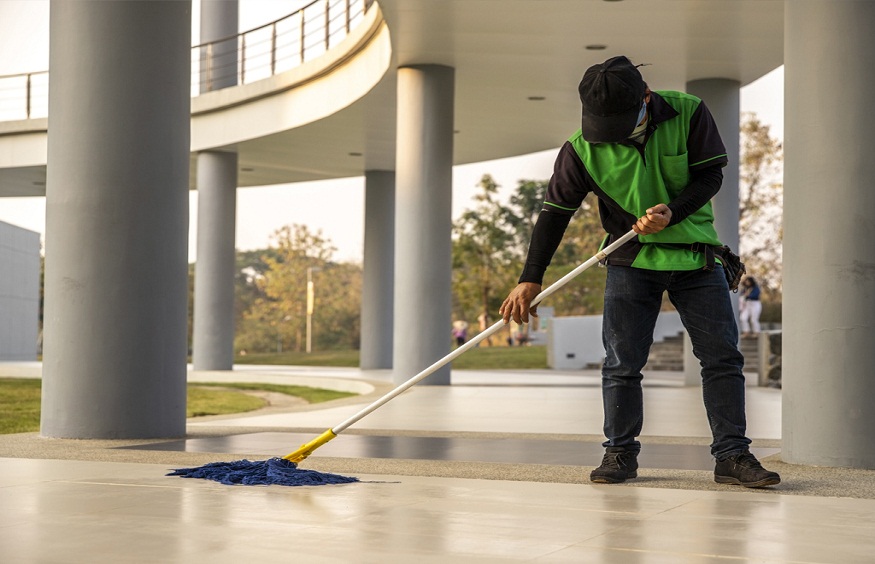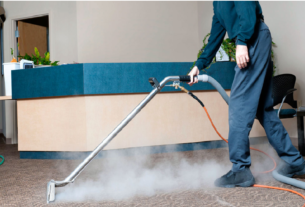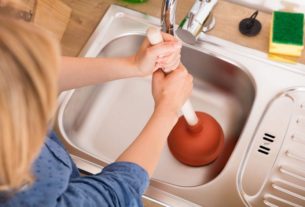In New Jersey, government buildings are central to the operation of essential services and the well-being of the public. From courthouses to municipal offices, these spaces accommodate thousands of visitors and employees daily. However, high foot traffic, diverse activities, and varying levels of use make government buildings prone to dust, bacteria, and pollutants. Cleaning and maintenance of these facilities are not just about appearance—they are essential for public health and safety. In recent years, there has been an increasing emphasis on government building cleaning NJ to address these needs comprehensively. Here’s a look at how professional cleaning enhances public safety and health in these critical spaces.
1. Reducing the Spread of Infectious Diseases
Government buildings are often filled with people from all walks of life, including children, seniors, and individuals with underlying health conditions. This diverse and dynamic flow of individuals makes these buildings susceptible to the spread of infectious diseases, particularly during flu season or outbreaks like COVID-19. Professional cleaning services implement advanced disinfection protocols that are specifically designed to combat pathogens that can spread through high-touch surfaces, such as doorknobs, elevator buttons, and service counters. With thorough and routine disinfection, the spread of bacteria and viruses is greatly minimized, leading to a healthier environment for both employees and visitors.
Modern cleaning services often employ hospital-grade disinfectants, UV light sterilization, and electrostatic sprayers to ensure maximum coverage and effectiveness. This approach not only reduces the spread of viruses but also reassures the public that the facility prioritizes health and safety.
2. Improving Indoor Air Quality
Indoor air quality (IAQ) is a critical factor in government buildings, as poor air quality can lead to respiratory issues, allergies, and even long-term health concerns. Dust, mold, pollen, and volatile organic compounds (VOCs) can accumulate in buildings, particularly in areas with poor ventilation. Professional cleaning teams use specialized equipment like HEPA filters in vacuum cleaners and air purifiers to trap airborne contaminants, ensuring that pollutants don’t settle on surfaces or circulate through the air. Regular HVAC cleaning is also a part of maintaining IAQ, which can help prevent respiratory problems and provide a more comfortable environment.
In addition to physical cleaning, many professional services use green cleaning solutions that minimize the release of VOCs, contributing to a safer and healthier indoor environment. The cleaner the air, the more comfortable and productive government employees and visitors will be.
3. Promoting a Safe and Pleasant Work Environment
A clean environment is directly related to the mental and physical well-being of employees. Government staff, from clerks to public servants, spend a significant amount of time within these buildings. Dirty, cluttered, or unhygienic conditions can affect employee morale, leading to stress and reduced productivity. Clean workspaces contribute to a more pleasant work environment, enhancing focus and energy levels among employees. This is particularly important in government offices, where efficiency and attentiveness are critical to serving the public effectively.
Beyond psychological benefits, a clean environment reduces the likelihood of accidents, such as slips or falls caused by unaddressed spills or cluttered walkways. Professional cleaners have the training and attention to detail needed to maintain clutter-free, safe work areas, significantly lowering the risk of injury in the workplace.
4. Complying with Health and Safety Regulations
Government buildings in NJ must comply with specific health and safety regulations, including Occupational Safety and Health Administration (OSHA) guidelines. Regular professional cleaning ensures compliance with these standards, as cleaning companies are well-versed in the regulatory requirements for various facilities. From routine cleaning schedules to detailed sanitation protocols, these services ensure that facilities meet or exceed legal standards for cleanliness and safety.
Failing to adhere to these standards can lead to fines, penalties, and even shutdowns, which can disrupt essential public services. A professional cleaning service helps government facilities remain compliant and avoid the costly consequences of neglecting sanitation and maintenance.
5. Specialized Cleaning for High-Traffic and Sensitive Areas
Not all areas in government buildings require the same level of cleaning. High-traffic areas, such as lobbies, restrooms, and waiting rooms, need more frequent and intensive cleaning due to constant use. In contrast, sensitive areas like IT rooms and document storage require specialized cleaning methods to prevent dust accumulation and maintain equipment. Professional cleaners are trained to handle these areas with care, using the appropriate methods and materials for each.
Additionally, some government facilities may require biohazard cleaning, especially in public health and law enforcement buildings. These areas demand highly specialized cleaning solutions and protocols, which professional cleaning services are equipped to provide.
6. Enhancing Public Confidence in Government Facilities
Clean government buildings reinforce public trust and confidence. People are more likely to engage with government services when they feel that the facilities, including critical spaces like police stations, are well-maintained and prioritize health and safety. Police station cleaning in NJ is especially crucial in ensuring that these high-traffic, community-oriented spaces remain clean, secure, and welcoming. In contrast, neglected or unclean buildings can foster negative perceptions, reducing community engagement and trust.
Especially in the post-pandemic landscape, the public is highly aware of cleanliness and sanitation standards. When people observe government facilities taking proactive measures, such as professional cleaning, they feel more comfortable using these services and trust that their safety is being considered. Enhanced public confidence can translate into greater civic engagement and a stronger community connection to local government.
7. Sustainable Cleaning for a Healthier Future
NJ’s government buildings are increasingly adopting sustainable practices in their cleaning protocols. Many professional cleaning companies use eco-friendly products and methods, reducing the environmental footprint of their services. Green cleaning solutions eliminate harsh chemicals and reduce water waste, benefiting both the environment and the health of the building’s occupants.
Sustainable cleaning practices support New Jersey’s environmental goals, aligning government buildings with broader state policies on environmental responsibility. By choosing green cleaning methods, government facilities can contribute to a healthier ecosystem and reduce the long-term health risks associated with chemical cleaners.
Conclusion
Government buildings are vital to the functioning of society, serving as hubs for critical services and public engagement. Keeping these facilities clean and well-maintained is essential to ensuring the safety, health, and trust of the public. With Cleaning World cleaning services, NJ’s government buildings can maintain high standards of hygiene and safety, improve indoor air quality, and create an environment that fosters both productivity and public confidence. By investing in specialized and sustainable cleaning practices through Cleaning World, government offices set an example of responsibility, efficiency, and care, reflecting New Jersey’s commitment to public well-being and a healthier future.



